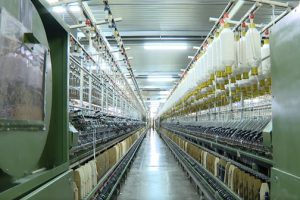The COVID-19 pandemic is not only a public health emergency. It also poses major threats to the world economy. The large scale economic crisis spurred by the virus has actually turned into an economic pandemic.
Severe global recession is most likely to occur due to the Covid-19 pandemic.Now the concern of economists is whether it is going to be a V-shaped,U-shaped or L-shaped recession. In a V-shaped recession the economy suffers a rapid fall but recovers very quickly. The U-shaped recession is a longer period of trough before recovery. L-shaped economic recession is the most severe one and it hits the economy hard and its consequences are so dire.
The economic consequences of the COVID-19 pandemic are expected to be worse than any other recessions the world economy has ever suffered from. The 2008 financial crisis, for instance, began in December 2007 but it took until September 2008 in order to the worst part of the recession to begin to be felt and it was in March 2009 that things were at their worst. That is a period of 15 months in order for the recession to hit rock bottom.
During this crisis the stock market dropped by 56.8 percent over the course of 517 days.
The current pandemic, COVID-19 on the other hand has made the stock market drop by 20 percent only within the first 21 days. And no one is in a position to tell how huge the recession is as the pandemic has infected over 1.6 million people thus far.
The higher mortality rate is not however the major cause for the global recession which is on its way. There are tons of economic indicators that signal a really bad economic condition coming in the future. Production of goods and services has been curtailed due to the spread of the pandemic. China for instance produces one-third of the world product. As the global supply chain, whenever China delays production the entire world delays as well. The sharp decline in the production of goods by the Chinese companies has brought a decline in the supply of goods on one hand. And on the other hand, Chinese manufacturing companies have stopped importing raw materials from the rest of the world which in turn has brought a decline in the value of export for the Chinese trade partners.
Considering African countries that export oil particularly to China, the export of oil by Angola and Congo-Brazzaville has declined. Nigeria, which is the continent’s major oil exporter exports more than a third of its oil to Europe which is now the epicenter of the pandemic.
In Ethiopia, reports show that various sectors of the economy, including the import-export, tourism and transport sectors, have deeply felt the effects of COVID-19.
Recently, the Ethiopian Investment Commission (EIC) revealed that the outbreak of COVID-19 is having significant impact on Ethiopia’s investment activities and import-export trade. The pandemic has significantly reduced the volume of exports, particularly horticulture products, nationally and globally.
Meanwhile, the import of inputs and other products has also been disrupted due to the pandemic. This, on the other hand, has been affecting investment activities locally and the export of products such as horticulture.
Again, the limitation in the movement of people is also having impact on the travel and tourism industry. The Ministry of Culture and Tourism also said the outbreak of COVID-19 pandemic internationally has significantly affected Ethiopia’s tourism sector. The pandemic has particularly harmed the income from conference tourism as most international events due to be held were either postponed or canceled.
COVID-19 is having a significant impact on tourism companies as many trips to Ethiopia by foreigners have been canceled. And this will have a long term impact due to the nature of the industry. The pandemic might be put under control in the foreseeable future. But the effect on the tourism sector would extend up to eight months.
When we turn to the global scenario, one of the major economic features that the Corona Virus has made clear is that depending on one global supply chain such as China is extremely risky. Now the world has witnessed that it would get pneumonia when China sneezes. Diversification of supply chain therefore can be one of major agenda the world would consider in the post-crisis period. This spread of global supply chain would probably slow down the world’s economic growth due to inefficiency in production and logistics.
Besides the supply shock caused by the sharp decline in production of goods and services, consumer spending will also decline which will in turn slow the economic growth. Consumers are scared and don’t want to spend their money. There is a contraction in consumer spending. Consumers are now willing to spend only in household items mainly foods not on other consumer goods such as electronics, cars, phones, furniture, cloths and the likes. The decrease in supply, compared to the decrease in demand, is higher. This would result in a rise in the rate of inflation on household items. The supply shock and the contraction in consumer spending at a global level leave the global economy in ICU where recovery would not be that speedy.
Overcoming the Corona Virus and effectively containing the spread is of course the prior concern we all stand for. No one knows for sure when we would get back to the life we want. Almost every activity we used to engage in has been altered. Businesses are confused and worried. Consumers are scared. Governments don’t seem to know what to do. No cure available; world in lockdown; borders being sealed; entire nation in quarantine; airports, stadiums, schools, malls, colleges, cinema halls, churches and mosques in a shut down. The entire world is echoing confusion.
Governments however can and should take some economic and non-economic measures (including monetary and fiscal measures) in order to mitigate the dire consequences the Corona virus is posing on the economy, economists advise. Stabilizing the market and keeping employees at work, being the main goals of the government, the implementation of economic and financial measures would positively impact the war against the pandemic. Governments need to set up a loan program with a minimum (if possible 0%) level of interest rate to businesses. Injecting a significant amount of money into the system through banks with a lower or zero interest rates would stimulate investment and prevent businesses from shut-down. Governments also need to create confidence in the health system and need to devise a means of stimulation to encourage consumer spending.
Least developed countries (LDCs) are likely to be hit by the pandemic hard. The fragile health system wouldn’t be able to overcome the consequences if the pandemic goes beyond their prevention capacity. Their weak economies would also suffer from recession if no means is found to contain the spread of the virus and re-build the economy. The wealthier nation should actively support the staggering health system and economies of the LDCs lest insurmountable unemployment and (most likely) famine strike the LDCs. African leaders have requested a 150 Billion (USD) for support. This amount is not however enough to stabilize their economies given the facts on the ground.
The Ethiopian Herald April 16/2020
BY WOSSENSEGED ASSEFA
wossenkcmc@yahoo.com




